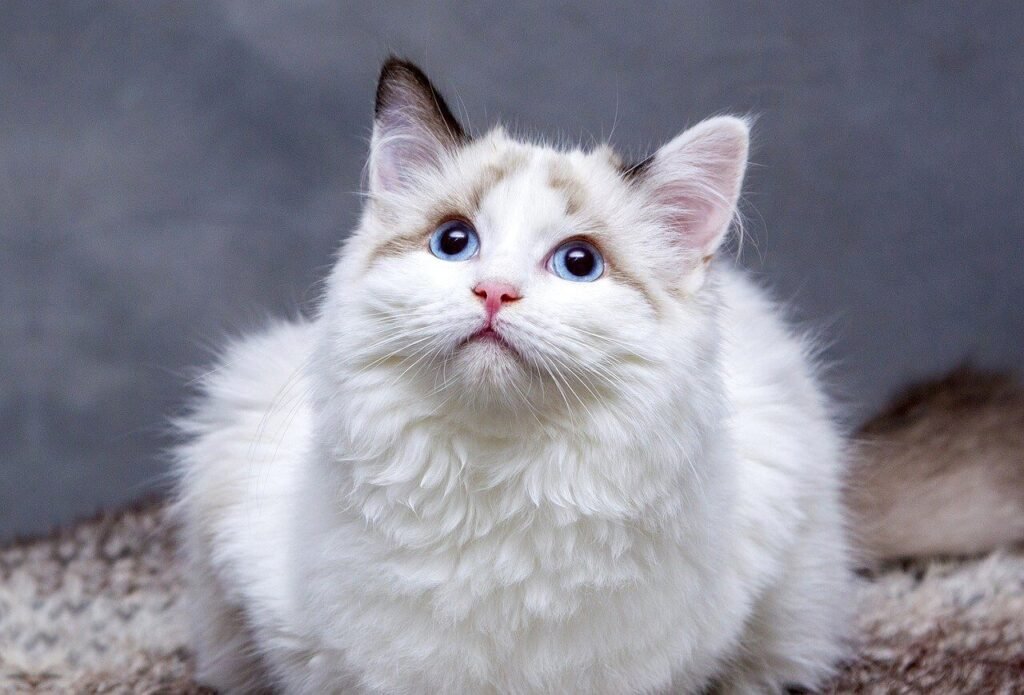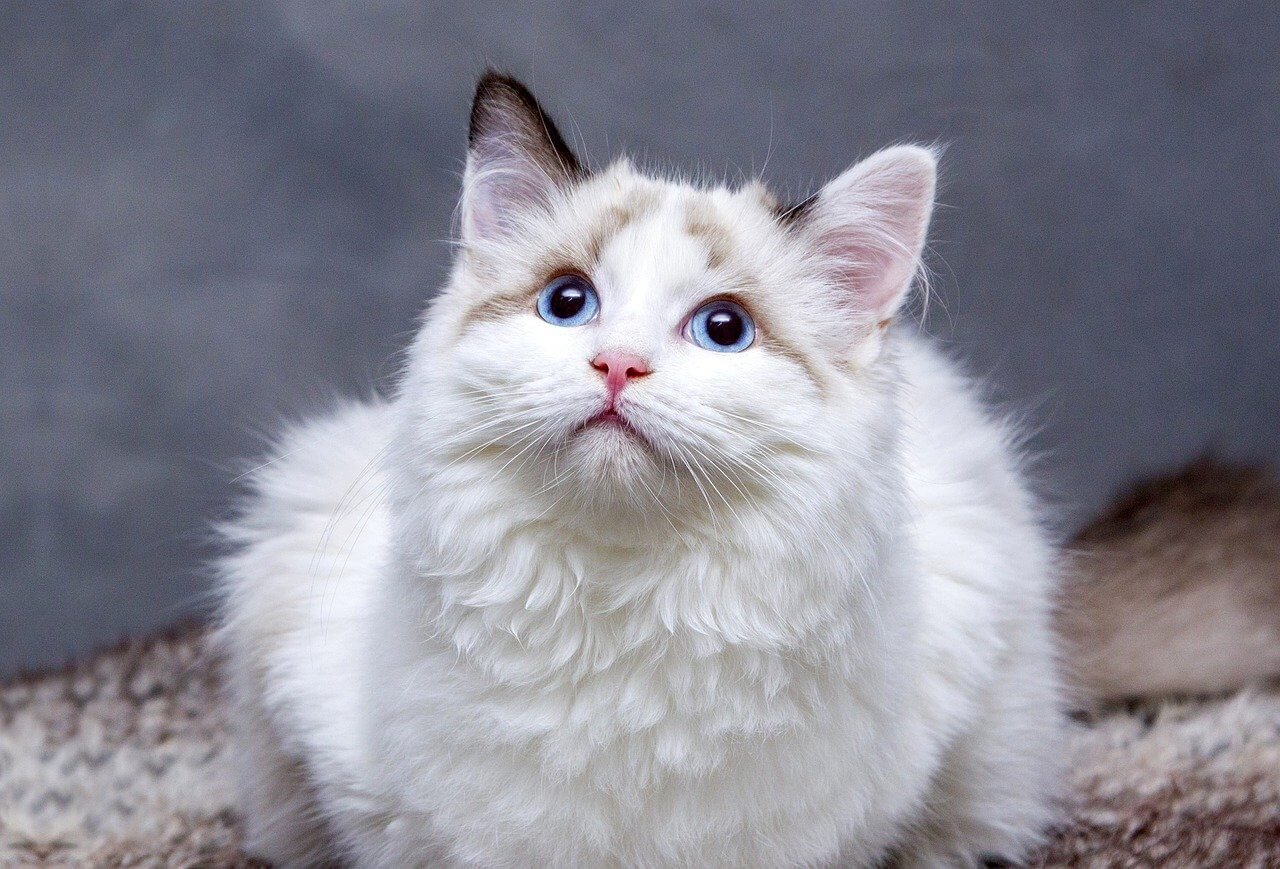Why Does My Cat Lick My Face?
If you’ve ever woken up to your cat’s sandpaper-like tongue grazing your cheek, you’re not alone. Many cat owners wonder why their feline companions engage in this behavior. While it may seem unusual—or even a bit uncomfortable—face-licking is one of the many ways cats communicate affection, curiosity, and trust. Understanding the reasons behind this quirky habit can deepen your bond with your cat and provide insight into their unique personality. In this blog post, we’ll explore the fascinating motivations behind face-licking, how to respond to it, and what it reveals about your relationship with your furry friend.
Reasons Why Your Cat Licks Your Face
Cats lick for a variety of reasons, and when they direct this behavior toward your face, it’s often a sign of deep connection or instinctual habits. Here are some common explanations for why your cat might be drawn to licking your face.
Affection and Bonding:
Cats groom each other as a way to strengthen social bonds. When your cat licks your face, they’re treating you like a member of their “family.”Marking Their Territory:
Cats have scent glands on their tongues, and licking helps them mark you as part of their territory—a sign of ownership and trust.Exploring Through Taste:
Cats rely heavily on their sense of smell and taste to explore the world. Licking your face allows them to gather information about your scent and environment.Seeking Attention:
If your cat wants your focus, licking your face can be an effective way to get noticed and elicit a response from you.Comfort and Familiarity:
The texture and warmth of human skin might remind cats of grooming their littermates, triggering comforting memories.
Understanding these motivations highlights the emotional depth behind your cat’s seemingly simple actions.

How to Respond to Face-Licking Behavior
When your cat licks your face, your reaction can either reinforce or discourage the behavior. Here’s how to handle it thoughtfully while maintaining a positive relationship.
Reward Positive Intentions:
If your cat licks out of affection, gently petting or praising them reinforces the bond and encourages more positive interactions.Set Boundaries if Needed:
If face-licking bothers you, redirect the behavior by offering a toy or treat instead. Consistency is key to teaching boundaries.Check for Overgrooming Signs:
Excessive licking could indicate anxiety or stress. Monitor your cat’s overall behavior to ensure their licking isn’t compulsive.Keep Your Skin Clean:
Cats’ tongues can carry bacteria, so wash your face after being licked to avoid potential skin irritation or infections.Avoid Punishment:
Never scold your cat for licking—they don’t understand punishment and may become fearful or confused.
By responding appropriately, you can nurture your cat’s natural instincts while ensuring mutual comfort.
Check this guide 👉Why Does My Cat Not Purr? Best 7 Expert Tips!
Check this guide 👉 Why Does My Cat Twitch in Their Sleep? Best 7 Expert Tips!
Check this guide 👉 Why Is My Cat Coughing? Best 7 Expert Tips!
Why Cats Lick Humans | What You Can Do About It |
|---|---|
Show affection and bonding | Pet or praise your cat to encourage |
Mark you as part of their territory | Accept it as a sign of trust |
Explore scents and tastes | Wash your face afterward for hygiene |
Seek attention or interaction | Redirect with toys or treats if needed |
Express comfort and familiarity | Provide alternative forms of bonding |
Other Ways Cats Show Affection Besides Licking
While face-licking is one way cats express love, there are plenty of other behaviors that demonstrate their affection. Recognizing these signs can help you appreciate the full range of your cat’s emotions.
Headbutting (Bunting):
Cats rub their heads against you to deposit scent markings, signaling trust and closeness.Kneading:
This rhythmic paw-pushing motion stems from kittenhood and indicates contentment and relaxation.Purring:
A cat’s purr is often a sign of happiness, though it can also signal comfort during stressful moments.Slow Blinking:
Cats communicate trust and affection through slow blinks, often referred to as “cat kisses.”Following You Around:
If your cat trails you wherever you go, it shows they value your presence and feel secure with you.
These behaviors highlight the many ways cats express their feelings, proving just how expressive and loving they can be.
Signs Your Cat Trusts You Beyond Face-Licking
Face-licking isn’t the only indicator of trust between you and your cat. Look for these additional signs that show your bond runs deep.
Sleeping Near You:
Cats are vulnerable when sleeping, so choosing to nap close to you demonstrates immense trust.Exposing Their Belly:
Rolling over and showing their belly is a sign of ultimate vulnerability and comfort around you.Bringing You “Gifts”:
Whether it’s a toy or, unfortunately, prey, bringing you items reflects their desire to share resources.Vocalizing Freely:
Cats who meow, chirp, or chatter around you feel safe enough to express themselves openly.Allowing Touches:
Letting you touch sensitive areas like their paws or tail signifies complete trust in your intentions.
These subtle yet meaningful gestures reveal the strength of your relationship with your cat.
How to Discourage Unwanted Licking
If your cat’s face-licking becomes excessive or uncomfortable, there are gentle ways to discourage the behavior without damaging your relationship. These strategies focus on redirection rather than punishment.
Provide Alternatives for Grooming:
Offer grooming tools like brushes or grooming mitts to satisfy your cat’s urge to clean.Use Distraction Techniques:
Engage your cat with interactive toys or puzzles to divert their attention away from licking.Establish Clear Boundaries:
Gently remove your cat from your face when they start licking, reinforcing consistent limits.Increase Playtime:
Ensuring your cat has ample physical and mental stimulation reduces the likelihood of unwanted behaviors.Consult a Veterinarian:
If the licking seems compulsive, seek professional advice to rule out underlying health or behavioral issues.
With patience and consistency, you can manage this behavior while preserving your bond.
The Role of Scent in Cat Communication
Cats rely heavily on scent to communicate, and licking plays a significant role in this process. Understanding the importance of scent can shed light on why your cat licks you.
Scent Marking Builds Trust:
Licking deposits pheromones, creating a familiar scent profile that reassures your cat of your presence.Recognizing Shared Scents:
Cats often lick objects or people that carry scents they associate with safety and comfort.Reinforcing Social Bonds:
Mutual grooming within cat colonies strengthens relationships, and licking extends this practice to humans.Identifying Changes in Environment:
Cats use licking to detect changes in their surroundings, including unfamiliar scents on your skin.Expressing Curiosity:
Licking helps cats investigate new smells or textures, satisfying their innate curiosity.
Scent-based communication underscores the complexity of your cat’s interactions with you.
Addressing Concerns About Aggressive Licking
Sometimes, licking can escalate into nibbling or biting, which may signal frustration or overstimulation. Here’s how to address concerns about aggressive licking behavior.
Watch for Warning Signs:
Tail flicking, flattened ears, or growling may precede aggressive licking. Learn to recognize these cues.Stop Interactions Early:
If your cat shows signs of irritation, pause the interaction before it escalates to biting.Redirect Energy Positively:
Use toys or activities to channel your cat’s energy into play instead of aggressive licking.Rule Out Medical Issues:
Pain or discomfort can sometimes manifest as aggressive behavior. Schedule a vet visit if unsure.Teach Gentle Behavior:
Reward calm, non-aggressive interactions to reinforce positive habits over time.
Addressing aggressive licking early ensures a harmonious relationship with your feline companion.
Frequently Asked Questions About Cats Licking Faces
Why does my cat only lick me and not others?
Your cat likely feels a stronger bond with you or sees you as their primary caregiver.
Is it safe to let my cat lick my face?
Generally, yes, but ensure good hygiene to prevent infections from bacteria in their saliva.
How can I stop my cat from licking my face?
Redirect their attention to toys or reward alternative behaviors consistently.
Do all cats lick their owners?
No, each cat has a unique personality; some prefer other forms of affection.
What should I do if my cat licks too hard?
Gently discourage the behavior and provide softer surfaces for them to lick instead.
Celebrating the Unique Bond Between You and Your Cat
Your cat’s tendency to lick your face is more than just a quirky habit—it’s a testament to the strong bond you share. By understanding the motivations behind this behavior, responding thoughtfully, and appreciating the broader spectrum of feline affection, you can strengthen your connection even further. Remember, every lick, purr, and headbutt is a reminder of how deeply your cat values you. So the next time your feline friend decides to give your face a gentle swipe, take it as a heartfelt compliment—and return the favor with love and care.
Canned Pumpkin for Cat Diarrhea: Best 7 Expert Tips! Natural remedy to firm stools, soothe upset bellies, and support gut health safely.
Can a Cat Give You Scabies? Best 7 Expert Tips! Discover the truth about feline mites, human skin risks, and how to protect yourself—without panic.
Cat Flea vs Human Flea: Best 7 Expert Tips! Discover the truth about bites, species, and how to eliminate infestations for good.
Weird Cat Behaviors: Best 7 Expert Tips! Discover why cats do strange things—and how to understand, not punish, their instincts for a happier home.





